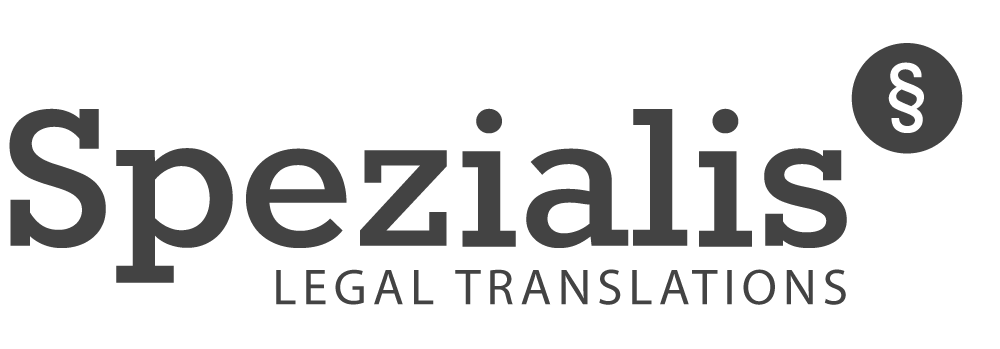FAQs - legal translations
How do I get a quote for my legal translation?
Simply send me an email to office@spezialis-translations.at, together with information on the length and type of the documents to be translated and your preferred deadline for delivery. I will get in touch with you promptly with a quote or to request further information.
How much does a legal translation cost?
It is difficult to say without first examining the documents to be translated. The price for a legal translation depends on several factors, including the complexity and length of the source text.
The price per standard line of source text (1 standard line = 55 characters including spaces) ranges from EUR 1.50 to EUR 2.00 (excl. VAT). Spezialis also reserves the right to charge increased fees for express translations (delivery within 24 hours) or work done over the weekend/at night/on official holidays.
What does post-editing cost?
Prices for post-editing services are calculated differently. While classic translation work is charged based on standard lines, post-editing is charged for by the hour. My hourly rate for post-editing services is EUR 80-100.
Is there a minimum price for legal translations / post-editing?
Yes. A project does not simply consist of the translation itself, but requires other work to be done, and this must also be taken account of in the price. Even the smallest projects require emails to be written, invoices to be issued and questions to be answered.
For this reasons, Spezialis charges a minimum fee of EUR 80 for classic translations. At least one hour will be charged for post-editing (EUR 80-100).
Does Spezialis accept jobs from private individuals?
No. Spezialis focuses exclusively on B2B projects and therefore only accepts jobs from other businesses.
What information does the translator require in order to complete the project?
The most important document is of course the source text, which should be given to the translator as soon as possible so that she can deliver the translation within the agreed time period.
Otherwise, the following information should be provided when commissioning the translation: country in which the translation is intended to be used, preferred language variant (e.g. British English), purpose of the translation (e.g. submission to state authority, for advertising purposes, for company internal use only, quality requirements for the post-edited text) and any specific terminology to be used. For further information, please see my general terms and conditions.
What language combinations does Spezialis offer?
As a rule (and in line with the so-called “mother tongue principle”), I only translate from German into English. Translations from English into German may be offered in individual cases. Simply send me an enquiry and I will get back to you.
What is so special about a legal translation?
Like other specialist languages, the language of law is highly complex and differs from colloquial language in many aspects. The meaning of words and concepts is extremely precise; the slightest error in one’s choice of words can have significant consequences.
Therefore, with legal translations, it is not sufficient to simply have flawless knowledge of the source and target languages. A high quality legal translation also requires deep knowledge of the content of legal concepts as well as how the underlying legal principles operate in practice. This requires education and experience.
What legal qualifications does the translator have?
Katharine Eyre studied law in England (University College London), Germany and Austria. After her studies, she worked for ten years in the legal sector in Austria, spending time at a commercial law firm, a bank and the Austrian Financial Markets Authority. She has been working as a freelance legal translator since 2015.
What can I do if I have questions about the translation?
Please do not hesitate to get in touch with Spezialis! I would be pleased to answer any questions and discuss amendments and alternatives with you.
Will my documents and data be handled confidentially?
Of course. Spezialis does not pass translations on to third parties; all work is done in house. Documents are stored securely and protected from being accessed by unauthorised third parties. I can sign a confidentiality agreement if you wish.
If a project is not awarded/pursued, all documents sent will be deleted promptly. Unless the provisions of law stipulate a longer retention period, all documents relating to a successfully completed project will be deleted 5 years after the end of the year in which the relevant project was completed.
How are confidentiality & data protection issues handled with post-editing?
For post editing, I use the tool DeepL Pro. This tool is suitable for use to translate personal data within the meaning of the GDPR. DeepL is subject to German law and must comply with the provisions of the GDPR and the German Federal Data Protection Act (Bundesdatenschutzgesetz, BDSG).
As a rule, the texts translated using DeepL Pro are not stored by DeepL and are deleted as soon as the translation is completed.
I also ensure confidentiality by anonymising your text before entering it into the translation tool and do not use machine translation to translate texts which contain sensitive personal information such as health data.
